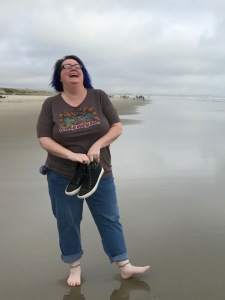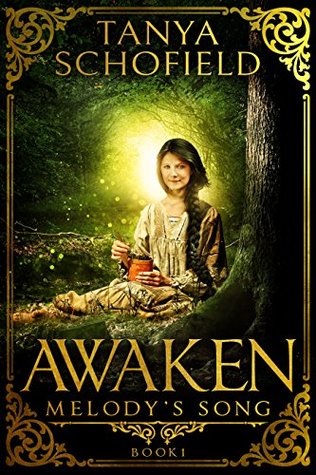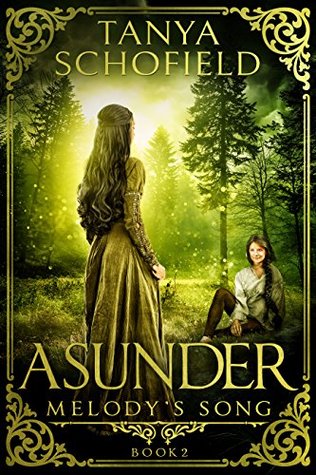Author Spotlight: Tanya Schofield
Joining us for today’s Author Spotlight is Tanya Schofield!
Tanya Schofield is a genre-fluid writer of (occasionally) epic fiction. Here’s what she had to tell us about herself:
“There she is! Cute, huh? Sort of a quiet, nerdy thing. Not your usual, but nice.”
You should know I’m terrible at biographies. Well, I am. Talking about myself makes me itch. I feel as though the worlds and characters in my head and on the pages of my books are infinitely more interesting than I am. But for the curious, I’m an INFJ Pisces living in New Hampshire. I read Tarot, drink tea, and dream of living a tiny life with a tiny cat in a tiny house by the ocean. Any ocean. I’m not picky.
I am relatively friendly though. Feel free to connect with me on Facebook (/iamtanyaschofield) or Instagram (/tanyaschofield)!
Thanks for joining us today, Tanya. Let’s start small: tell us about a great book you’ve read recently!
The Leaf Reader (by Emily Arsenault) was the last book I read which really grabbed me. As a tarot reader, I’m interested in all kinds of divination – and now that I’m obsessed with tea, her story about a budding psychic made me want to study tea leaf reading as well! I loved the protagonist’s initial reluctance and how she developed as a character based on her experience – and I enjoyed how the tea-leaf symbolism was worked into the mystery part of the story. I’m looking forward to a sequel!
Okay, time to escalate things: reality warps and you suddenly find yourself leading a D&D-style party through a monster-infested dungeon. What character class are you, and what’s your weapon of choice?
Well first, let’s make it clear that I don’t lead parties 🙂 In all my *mumblemumble* years of playing D&D, I’ve been a support class every time, standing way back behind the meatshields warrior classes so I can um… protect the mage. Yeah, that’s it. I protect the casters. (Fun fact: Melody started out in an AD&D Campaign! She was a bard. Poor thing.) My favorite class to play is a rogue, so I would be one of those, and I’m a big fan of the scimitar. Unexpected, and so sheik.
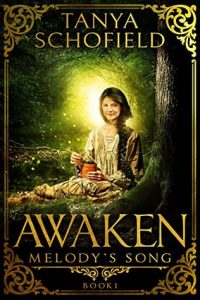 When you’re not trawling through dungeons, do you prefer to type or to hand-write? Why?
When you’re not trawling through dungeons, do you prefer to type or to hand-write? Why?
I adore the process of handwriting – it forces me to slow down and record one idea at a time, which is a nice change from my usual “there are 23 tabs open in my brain, three are to-do lists with overlapping and contradictory line items, twelve contain weirdly specific factoids I may never need … now which two are playing the music?” Unfortunately, I have arthritis in my thumb and wrist, so I can’t hand-write for more than a few pages without consequence. So mostly, I type.
And how do you like to work – in silence, with music, or serenaded by the damned souls of a thousand dead shrimps?
I’m a fan of sound, but lyrics are a big no. Correction: lyrics I can understand. I love writing to foreign language music – French Jazz, K-Pop (or J-Pop,) Spanish ballads – if it “fits” what I’m working on. I also love instrumental video game and movie soundtracks. When music isn’t helping, I go straight to mynoise.net – generators for DAYS. I can put myself in any environment I need to get a feel for.
Are you an architect or a gardener? A plotter or a pantser? D’you write in your underwear, or in a deep-sea diver’s suit? Tell us something unusual about your writing method!
I like to think of myself as an archaeologist, as opposed to an architect. I uncover an idea, and then ask / answer questions about that idea until a synopsis takes shape. I do some plotting, but I remain fully aware that my characters run the show and will ignore said plot if it suits them. I think the “weirdest” thing I do is talk to my characters to get to know them— old school style, with one piece of paper and two colors of pen, one for me and one for them. They make sure I know who they really are before they trust me with their stories.
What are your most significant non-book fantasy influences?
I had to think on this one! (Non-book? What?) Tarot, for one – the cards are so full of possibilities, symbolism, and archetypes that even the most mundane circumstance seems mystical. I tend to collect decks based on their art. Art is a big influence as well, but usually it’s non-fantasy art that triggers ‘fantastical’ ideas for me. Landscape or location art often sets my brain spinning with “I can picture something unusual happening there…”
What was the last thing you watched on TV and why did you choose to watch it?
As of this writing, the last thing I watched was Episode 2 of the Netflix series “Altered Carbon.” I fully intend to finish the series, I am utterly invested in the world and the characters (so far my favorite is the hotel.) I watched it with and on the recommendation of my brother, who heard about it from his boss – mostly because I had been editing for a zillion straight days and needed a break.
The world shifts, and you find yourself with an extra day on your hands during which you’re not allowed to write or otherwise do any work. How do you choose to spend the day?
Day trip to the ocean (as long as it’s off season.) Reading, maybe, or baking cookies. Hanging out with my oldest daughter and watching spooky youtube videos. Coloring my hair blue or purple or teal. Binge-watching Supernatural. Yeah. Probably that last one 🙂
If you could choose one punctuation mark to be made illegal, which would it be and why?
After much consideration, I believe I would abolish the apostrophe. This is not because I do not use it myself, but because of how frequently it is mis-used by others. Additionally, there is a sense of delicious formality to writing which is not peppered throughout with abbreviations. Unfortunately, due to the usefulness of the apostrophe in denoting possession, I doubt the proposed ban would last.
In no more than three sentences, tell us a little something about your current work in progress!
Estranged brothers are reunited in present-day New Hampshire when they inherit their wealthy grandfather’s estate – which turns out to be an invisible tower in a town that no longer exists. They are surprised to learn that he was a powerful sorcerer – with equally powerful enemies. (And there’s a bit with a dragon.)
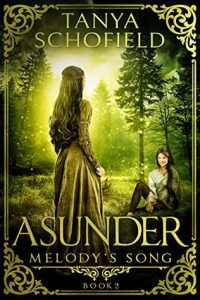 It sounds fantastic! If you could co-write or co-create a series (like The Expanse, or the Malazan Book of the Fallen), who would you choose to work with and why?
It sounds fantastic! If you could co-write or co-create a series (like The Expanse, or the Malazan Book of the Fallen), who would you choose to work with and why?
I’ve never worked with another writer on a project before, I imagine the details of who would write what and which ideas would be incorporated into the finished product would drive me mad. (I was terrible at group projects in school, too.) If pressed, I’d probably pick Tina Whittle (author of the Tai Randolph / Trey Seaver series – tinawhittle.com) because she is 1) delightful as a person and I already know we get along, 2) a fellow Tarot enthusiast who appreciates the hidden depths of ordinary things, and 3) she is SO much better at mysteries than I am. I could learn a lot from her.
What’s the most (and/or least) helpful piece of writing advice you’ve ever received?
The LEAST helpful advice ever has been “kill your darlings,” because sometimes all my “darlings” needed was a little more time and patience to become extraordinary – but instead they became memories of what they could have been.
The BEST advice has been to physically rewrite a first draft into the second. Actually retype each word, editing as you go. Astonishingly effective. I do it with anything that’s giving me difficulty – there’s a sense of a fresh start, cooking dinner with fresh ingredients instead of trying to push leftovers together in new ways.
If you could visit any country at any point in history, where/when would you go, and why?
It’s funny to me how many answers just surged forth and were immediately batted aside like mosquitos because the rest of my brain helpfully supplied things like mortality rates and the fact that I don’t speak the language and how I don’t even fit in my own country/timeline, what makes me think I wouldn’t be stoned to death anywhere/when else?
Ignoring all realism and practical thought, I’d probably choose medieval Scotland – based solely on the early work of Julie Garwood. (“Ransom” and “The Secret” are just delicious, I re-read them whenever I need an escape.)
Every writer encounters stumbling blocks, be it a difficult chapter, challenging subject matter or just starting a new project. How do you motivate yourself on days when you don’t want to write?
The short answer is, I don’t. At this point, I know my own rhythms. I show up to the page regardless, and when I’m resisting because the work is hard, my solution is Swedish Fish and a ‘push through it” attitude. (I will be a wreck when I finish, but I can get it done.) When I’m truly overwhelmed, though, when the characters are silent and the plot is problematic and there’s an element that just won’t work – I walk away. I take a nap or a bath or I go play with my granddaughter or I watch a stupid movie. I trust the process, because historically, the answer / solution / idea shows up (while I’m doing something else) within 24 hours. No more than 48. Trying to force creativity, for me, never ends well.
Tell us about a book that’s excellent, but underappreciated or obscure.
There is a book that I credit with about 138% of my personality, creativity, and imagination – but whenever I mention it, I am met with complete blank stares. I would like to change that. “The Last of the Really Great Whangdoodles” is a children’s book (grades 4-7) by Julie Edwards (Andrews. Yes. Mary Poppins wrote this.) There is no better treatise on the power of imagination than this book right here – I read it so many times I probably know it by heart. With or without children to read it to, just give it a chance. (It’s on Amazon. They informed me there was a 30th anniversary edition, so if you’ll excuse me, I have to go yell at some kids to get off my lawn.)
Finally, would you be so kind as to dazzle us with what we like to call a ‘shark elevator pitch’? (It’s exactly the same as an elevator pitch, but with sharks.) (Well, one shark. Which, by the way, is currently picking between its rows of teeth to try and dislodge the remains of the last author who stepped onto its elevator.)
Ahem. So: why should readers check out your work? A shark elevator pitch of your own book(s) in no more than three sentences – go!
“Oh hey, you’re a shark – probably used to being misunderstood, feared, and even hunted based on what OTHER sharks have done, huh? Melody – sweet girl, way out of her element – she’s right there with you, except for the shark part. Hang in there— If she can find allies and manage to make a difference in her world, then so can you, my new shark friend.”
Awesome stuff. Thanks again for joining us today, Tanya!
Tanya Schofield is the author of the Melody’s Song series, including Awaken and Asunder.

